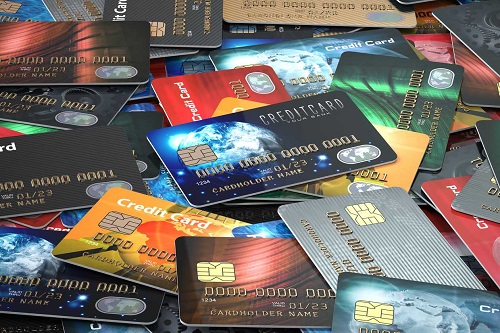A credit card is a small, rectangular piece of metal or plastic that is provided by a bank or other financial services provider. Cardholders can use their credit cards to borrow money to pay for products and services from businesses that accept credit cards. Credit cardholders are required to repay the borrowed funds in full by the billing date or over time, together with any relevant interest and any other costs that were agreed upon.
Credit cards provide financial flexibility and convenience, but improper use can result in a difficult-to-break debt cycle. It’s essential to comprehend the actions that lead to credit card debt if you want to keep your finances in order. Let’s look at some key behaviors to be mindful of.
Impulse Spending
Impulsive spending is one of the main causes of credit card debt. Unplanned purchases can easily add up and result in big balances and higher interest payments if you don’t think about how they will affect your budget.
Minimum Payments Mentality
Paying only the minimum amount due each month may seem convenient, but it prolongs the repayment period and increases interest costs. It’s essential to strive for more than the minimum payment to make meaningful progress in reducing your credit card balance.
Ignoring Budgeting
Failing to create and adhere to a budget can result in overspending. Without a clear understanding of income, expenses, and financial goals, individuals are more likely to rely on credit cards to cover gaps, contributing to mounting debt.
No Emergency Fund
Without an emergency fund, unexpected expenses often end up on credit cards. Relying on credit for emergencies can quickly lead to high balances, especially if the funds aren’t available to pay off the charges promptly.
Frequent Balance Transfers
While balance transfers can be a tool for managing debt, frequent transfers without a solid repayment plan can worsen the situation. Transferring balances without addressing the root cause of debt may lead to a cycle of shifting rather than reducing debt.
High Credit Utilization
UUtilizing a substantial part of your credit limit can have adverse effects on your credit score and increase the risk of falling into debt. Strive to maintain a low credit utilization ratio below 30% to maintain a healthy credit profile.
Ignoring Statements
Ignoring credit card bills could result in fraudulent activity, missing payment deadlines, or mistaken charges. Monitoring your statements on a regular basis guarantees that you are aware of your financial activities and aids in avoiding needless debt. Speak with an experienced debt lawyer for professional advice and assistance.
Accumulating Rewards Debt
While credit card rewards can be enticing, accumulating debt to earn rewards negates their value. Prioritize responsible spending over earning rewards, and only use rewards if you can pay off the balance in full.
Lack Of Financial Education
A lack of understanding about credit card terms, interest rates, and fees can contribute to poor financial decisions. Investing time in financial education can empower individuals to make informed choices and avoid behaviors that lead to credit card debt.
Co-Signing without Caution
Co-signing for someone else’s credit card or loan can affect your financial well-being. You may be responsible for the debt if the primary account holder defaults. Exercise caution when considering co-signing.
Keeping Up with Others
Maintaining a lifestyle beyond your means or keeping up with others’ spending habits can lead to excessive credit card usage. Focus on your financial goals and priorities rather than external pressures.
Postponing Debt Repayment
Delaying debt repayment to address it later can result in increased interest charges. Procrastination often leads to growing debt that becomes more challenging to manage.
Navigating Your Finances With Confidence
Avoiding the pitfalls of credit card debt requires vigilance, and recognizing the impact of impulse spending, minimum payments, and the absence of a budget is paramount. The allure of rewards and maintaining a certain lifestyle can lead to accumulating debt without a clear repayment strategy.
Important things to remember are to avoid co-signing agreements, use credit responsibly, and regularly monitor your statements. People may successfully navigate the financial environment and avoid the constraints of credit card debt by being aware of these behaviours and adopting proactive measures.
